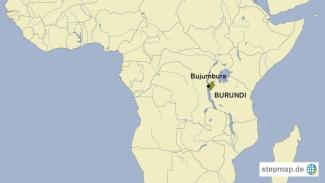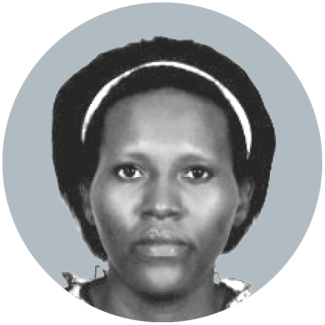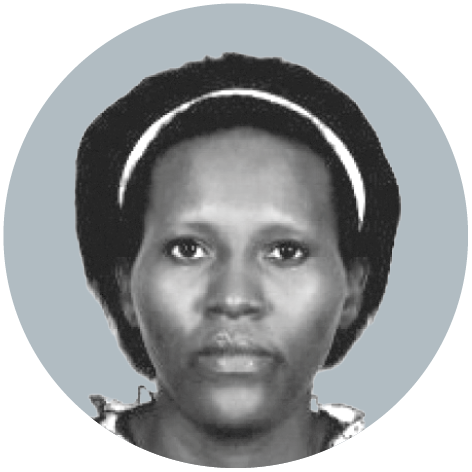Keeping the peace
Policing from a female perspective

In Burundi, those efforts are starting to show results. For the first time ever, women are taking prominent jobs in the country’s military and the police forces. They bring to these jobs their unique perspectives on preventing violence, promoting dialogue and protecting women during armed conflict.
For example, Generose Ngendanganya, 55, recently was appointed Principal Police Commissioner. She is the first woman to hold this post, whose rank is equivalent to that of Major General in the army.
Commissioner Ngendanganya joined the police force as a lieutenant nearly 30 years ago and rose through the ranks. Along the way, one of her jobs was to lead the department for the protection of minors. Part of her duties was to protect girls from themselves: when girls in the city of Bujumbura "dressed extravagantly", as she put it, her duty was to advise them to reconsider, for their own safety.
Her new job is wide-ranging. Among other matters, she must guard against corruption in the ranks of the police force itself. Applicants for travel documents, for example, have complained they were forced to pay bribes. "Everyone should be served without paying bribes,” she says. “Passports are now issued without delay. I personally handle emergency cases in an orderly manner.”
Another policewoman who has risen to prominence is Clotilde Poyongo, Burundi’s first female Judicial Police Officer. She processes human- and civil-rights complaints, particularly from women and children. Queues of such applicants form outside her office every day, reporting attacks and other crimes that they have suffered . Typically, female plaintiffs seek her out rather than turning to male police officers.
Some of Officer Poyongo’s case load consists of referrals from a specialised gender unit within the Ministry of Security. This unit was created in recognition of the high incidence of violence against women and the different nature of crimes, such as rape, that are perpetrated against females.
Women are also making inroads in the military. The Burundian army is including women in peacekeeping missions to neighbouring countries. One example is Major Francine Ndayisaba, who has joined several peacekeeping operations. She says, though, that there are too few women in such roles.
That shortage is being addressed, says Colonel Floribert Biyereke, spokesman for Burundi’s National Defence Force. He notes that the military has created a gender department and put a woman in charge of it. "If the office has been entrusted to a woman, it is precisely because women have specific needs that require specific treatment," he says.
Taken together, the new roles for women in the police and the military mean that "a giant step has been taken," says Jennet Kem, the UN’s representative in Burundi.
She notes that women have suffered disproportionately from political violence in eastern Africa’s Great Lakes region, including from clashes between rebels and regular armies in Burundi. “We just need to consider the situation of women 20 years ago” to understand that progress has been made, she says.
Mireille Kanyange is a journalist for Radio Isanganiro in Burundi.
mika.kanyange@gmail.com










